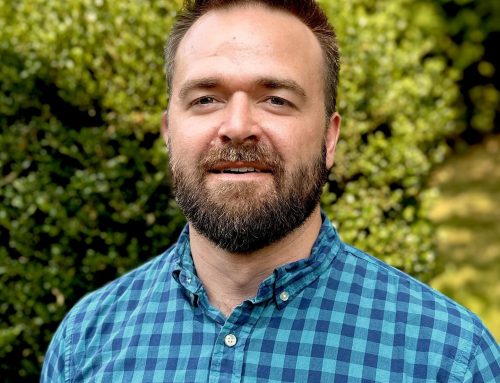The desire to get back to normal can prevent us from accepting the new normal.
 People often come to talk therapy for help dealing with a major change in their lives. In fact, I would say dealing with change is one of the most common situations that create issues for people to address in therapy. It could be a change in a relationship, a change within their family, or a change regarding work. It could be caused by something internal and specific to the client, or it could be something external and universal. The clients I see have much in common regarding the cause of the changes in their lives, as many have to do with situations created by the pandemic in some way. Changes like these can be harder to process than most of the relatively smaller changes we experience. By process, I mean the work of learning to acknowledge and accept these changes. Once we can acknowledge and accept that change has come, and that our “normal” life has permanently changed, we can get on with the work of trying to be happy in the moment.
People often come to talk therapy for help dealing with a major change in their lives. In fact, I would say dealing with change is one of the most common situations that create issues for people to address in therapy. It could be a change in a relationship, a change within their family, or a change regarding work. It could be caused by something internal and specific to the client, or it could be something external and universal. The clients I see have much in common regarding the cause of the changes in their lives, as many have to do with situations created by the pandemic in some way. Changes like these can be harder to process than most of the relatively smaller changes we experience. By process, I mean the work of learning to acknowledge and accept these changes. Once we can acknowledge and accept that change has come, and that our “normal” life has permanently changed, we can get on with the work of trying to be happy in the moment.
Major changes can happen (or feel like they’ve happened) in an instant, even if they took years to slowly build up to that point. Big changes like divorce, death, breakups, breakdowns — these kinds of changes create a before and an after in our lives. It often seems like we spend more time processing the aftermath of these changes than the events themselves lasted. During this period of time, we are likely to experience the processing of this change as anxiety or depression, and to feel the struggle to wrap our heads around the events of the past affecting us emotionally and physically in the present. We might feel restless or uncomfortable, like something is nagging at us, not allowing us to be at peace. We yearn to feel safe, and the idea of things being normal is safe. Normal, by definition, is the opposite of change. And if things are safe now, and they don’t change, then we’re safe. So, we strive for normal.
But what is normal?
Normal is, in this context, the past. Normal is the safety of knowing how things turn out. It feels good striving for a return to a sense of normalcy because we sometimes feel better thinking about the past than we do the present, where the future is uncertain. I think what makes it hard for us to enjoy happiness in the moment is our tendency to hold on too tightly to happiness from the past. When we idealize the past and subconsciously crave a return to that safer, more certain time, we take energy and focus away from being in the present, which is ultimately where we spend our lives.
A phrase that comes up in sessions with clients regarding this process is “let go to grow.” This refers to our tendency to hold on to the past to the detriment of our future. It often applies to situations in which a client feels stuck or at a dead end in life, love, or career. We often find that the things holding us back from changing our lives for the better are not the events that might happen to us so much as the events that have happened to us — meaning, we are ruled by our reactions and expectations to future possibilities that are based on events from much earlier in our lives.
How do we let go to grow? This is the work of talk therapy. We talk about what we’re holding onto and why. What feels good about it, what we don’t like about it. We take stock of where we are now after removing the filter of our expectations from the past. We identify the new normals that might be available to us after periods of change. We identify when we’re comparing our present experience to our past expectations, and learn to let go of them. Our present becomes the new normal.
Our experience in the post-pandemic business environment is reflective of this personal emotional state. The businesses that succeed seem to be the ones that adapted and incorporated lessons learned during the pandemic into their future operations. The ones that base their future expectations on how business was before March 2020 are going to be disappointed with how things are in the future, since things will never go back to being like there were. Likewise, people who expect their emotional lives to go back to normal are going to be disappointed as well. As with any major life change, the event that occurs to affect the change is just one part of it. It’s the change that occurs within ourselves that affects our lives the most. How we interpret or react to the objective event causes the change. Happier people seem to be able to adapt to changing normals more easily. People who constantly talk about how things used to be before everything changed don’t seem very happy to me. Let’s work on spending less time waiting for things get back to normal to be happy, and more time finding reasons to be happy right now.
Retrieved from Psychology Today




